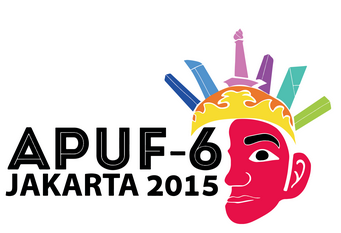 21 October 2015: The Sixth Asia-Pacific Urban Forum (APUF-6) reviewed the challenges of urbanization facing the region, as the UN Economic and Social Commission for Asia and the Pacific (ESCAP) called for stronger governance of cities, better and more accessible data, and blended finance to support cities’ capital investments.
21 October 2015: The Sixth Asia-Pacific Urban Forum (APUF-6) reviewed the challenges of urbanization facing the region, as the UN Economic and Social Commission for Asia and the Pacific (ESCAP) called for stronger governance of cities, better and more accessible data, and blended finance to support cities’ capital investments.
In her keynote address, ESCAP Executive Secretary Shamshad Akhtar stressed the extraordinary population growth of Asian and Pacific cities, and highlighted current challenges, including increased pressure on water and energy resources, changing consumption patterns, and lack of access to improved sanitation, faced by 75% of the urban population in many countries. She called for enhancing resilience and nurturing urban sustainability to create greater opportunities for all, noting that nations such as the Republic of Korea and Japan have created successful urban centers by investing strongly in education, healthcare and social protection.
APUF-6 also featured the launch of two ESCAP reports.
‘The State of Asian and Pacific Cities 2015,’ launched by ESCAP and the UN Human Settlements Programme (UN–Habitat), highlights that the region is already home to 17 “megacities” of over ten million inhabitants each, and that by 2050 the urban population of the region will reach 3.2 billion. The report – subtitled ‘Urban transformations: Shifting from quantity to quality’ – expresses concern over deteriorating air and water quality, vulnerability to natural disasters and climate change and growing inequalities. It notes that while the urban middle class is increasing, youth unemployment remains high and the urban poor have difficulty accessing housing and services. Over half of the region’s urban population, which lives in coastal cities, faces the prospect of sea-level rise that threatens to wipe out some settlements.
Speaking at the launch, Akhtar urged all concerned to strengthen local governance institutions and work more closely with the private sector to manage urbanization. She highlighted the Sustainable Development Goal (SDG) addressing sustainable urban transformation (Goal 11), as well as other targets relating to cities in the 2030 Agenda for Sustainable Development. She also called for addressing gaps in: power sharing between local and central government; financing of local government budgets; and capacity of local governments in urban planning.
ESCAP and the Bangladesh-based non-governmental organization (NGO) Waste Concern launched a report on ‘Valuing Waste: Transforming Cities,’ which summarizes lessons learned from ESCAP’s six-year regional programme on municipal solid waste management that introduced waste-to-resource initiatives in 17 cities and six countries. The report notes that the Asia-Pacific region’s generation of waste will rise from one million tonnes per day in 2012 to around 2.5 million tonnes by 2025. Iftekhar Enayetullah, Co-Founder and Director of Waste Concern, highlighted that up to 90% of solid waste can be recycled, providing income-earning opportunities.
APUF-6 took place in Jakarta, Indonesia, the 19-21 October 2015, back-to-back with the Habitat III regional preparatory meeting held the 21-22 October. The Forum was organized on the theme, ‘Sustainable Urban Development in Asia-Pacific: Towards a New Urban Agenda,’ and featured many parallel sessions on topics including: measuring progress through global sustainable development frameworks; financing sustainable urban development; participatory planning techniques; low-emissions development; and safer public spaces for women.
The outcomes of APUF-6 and the Habitat III Regional Meeting for Asia-Pacific will feed into the Habitat III preparatory process and inform the drafting of its outcome document.
The first Asia-Pacific Urban Youth Assembly (APUFY) convened ahead of APUF-6, on 17-18 October, aiming to provide a regional platform for youth of the region to articulate urban issues and solutions affecting their lives and communities. [APUF-6 Meeting Information] [Keynote Address] [Publication: The State of Asian and Pacific Cities 2015:Urban transformations: Shifting from quantity to quality] [ESACP Press Release on State of Asian and Pacific Cities Report] [Publication: Valuing Waste: Transforming Cities] [ESCAP Press Release on Valuing Waste Report] [APUFY Website] [Habitat III Preparatory Process]